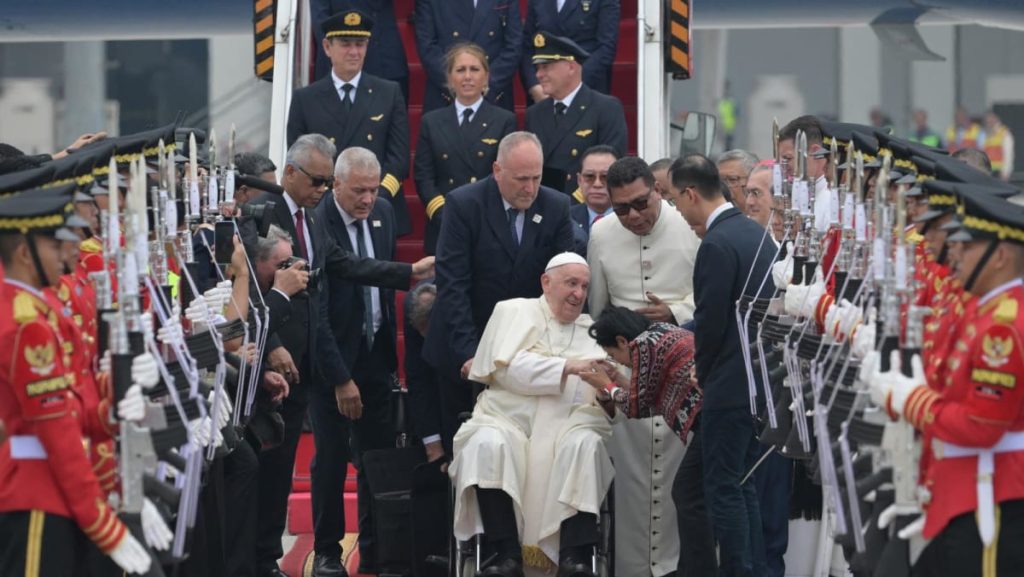Pope Francis visited Indonesia as a symbol of the country’s religious diversity and harmony, according to the religious affairs ministry. The visit was hailed as an important message to the world that religious harmony in Indonesia is guaranteed and implemented. During his visit, the Pope will sign a joint declaration with the grand imam of the Istiqlal Mosque focusing on issues such as dehumanization, violence, conflict, and environmental degradation. The Pope has been a strong advocate for combating climate change and its effects, such as rising sea levels that threaten Jakarta.
Indonesia has faced terrorist attacks in the past, including the 2002 bombings in Bali by Islamist militants that resulted in the death of 202 people. Security measures have been increased for the Pope’s visit, with roads around key sites being re-routed or closed to ensure his safety. This visit marks the third ever by a Pope to Indonesia and the first since John Paul II in 1989. Originally planned for 2020 but postponed due to the COVID-19 pandemic, the visit comes just three months before the Pope’s 88th birthday.
Pope Francis, who now uses a wheelchair due to fragile health, underwent hernia surgery last year and has been dealing with respiratory problems. He has not travelled abroad since visiting Marseille, France, in September last year, and had to cancel a planned address at United Nations climate talks in Dubai two months later due to health reasons. Despite his health issues, the Pope will be accompanied by his personal doctor and two nurses during his visit to Indonesia, with Vatican spokesman Matteo Bruni stating that no extra precautions are necessary.
As a strong advocate for peace, Pope Francis’ visit to Indonesia is seen as a significant moment to promote religious tolerance and harmony in the country. His joint declaration with the grand imam of the Istiqlal Mosque will address crucial issues such as violence, conflict, and environmental degradation. Security measures have been increased to ensure the Pope’s safety during his visit, especially considering Indonesia’s history of terrorist attacks. Despite his fragile health, the Pope remains committed to his message of peace and solidarity, using his platform to address urgent global challenges such as climate change.


